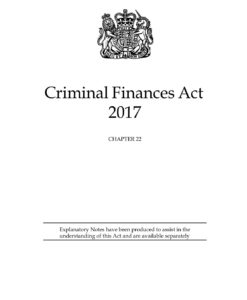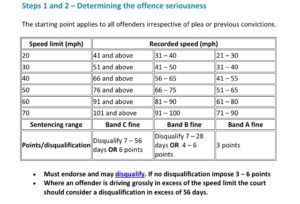It may be an offence to fail to provide information as the identity of a driver when you receive a written request for driver information from (or on behalf of) the police. If you are convicted then you face a hefty fine as well as 6 penalty points.
How long do they have to make the request?
Any request for driver information must normally be served within 14 days of the offence being committed. There is case law, for example, where because of a postal strike delivery of the request for driver information was delayed beyond the 14 days an offence had not been committed where there was a failure to respond.
If you receive a request for driver information and have any doubt as to whether the notice was served within the requisite period then please contact us immediately for further advice. For example, in some circumstances, a valid request can be made after the 14 day period. Do not ignore a request simply because you believe it to be out of time – always seek urgent legal advice from one of our motoring solicitors before you make any decision.
How long do I have to reply?
From the date the notice is served you have 28 days to reply, or “as soon as practicably after the end of that period”.
Is there a right against self-incrimination
A number of case have dealt with this issue. Simply put, it doesn’t matter. The requirement to identify the driver does not affect your human rights. The court has said “those who choose to keep and drive a car can be taken to have accepted certain responsibilities.”
Those responsibilities include the obligation to provide information upon request as to the driver of the vehicle on any occasion.
What if I really don’t know who was driving?
If you genuinely do not know who was driving it may be that you have a defence to an allegation of failing to answer a request for driver information.
The defence is that you “could not with reasonable diligence have ascertained who the driver of the vehicle was”. As a result, for this defence to succeed, you will have needed to make all reasonable enquiries to find out who the driver was. You will also need to reply to the request, providing what assistance you can.
In such circumstances it is best to seek early legal advice. A recent case involving the former politician Lord Howard, has opened up a number of interesting legal arguments.
I did not receive the request for driver information and now I have been summonsed. What do I do?
You may have a defence to the allegation. Please contact a motoring law solicitor at your nearest office for further advice.
What if I provide false information?
It can be tempting to name a spouse, or even someone abroad, in the hope of avoiding penalty points. To do so would amount to the offence of perverting the course of justice. This will almost always result in an immediate prison sentence.
We have provided more information about this here.
Companies
It will be a defence for a company to show that there was no record kept of the driver and that this failure to keep a record was reasonable. The notice can be served by sending it to a secretary or a clerk, at the registered or principal office.
Although It may seem obvious, a company cannot be given penalty points. As a result, any penalty would be limited to a fine.
In certain circumstances proceedings can also be brought against company directors. As a result a company cannot be used as a shield against prosecution for this offence. If your company operates a company car pool it would be wise to ensure that you have robust procedures in place in order to track vehicle usage or run the risk of a conviction for failure to answer a request for driver information.
Will I be entitled to Legal aid to defend this case?
Public funding may be available do defend any court proceedings, so if you have received a court date then please contact one of our expert road traffic lawyers for further information.
You can find out more information about legal aid here.
How our expert motoring law solicitors can assist

The law concerning a request for driver information can be complicated. This article is intended to give only a very brief overview of the issues involved. As a result, if you have any concerns or simply to discuss any aspect of your case please contact your nearest offices.
Details can be found here.
Alternatively you can use the contact form below.









